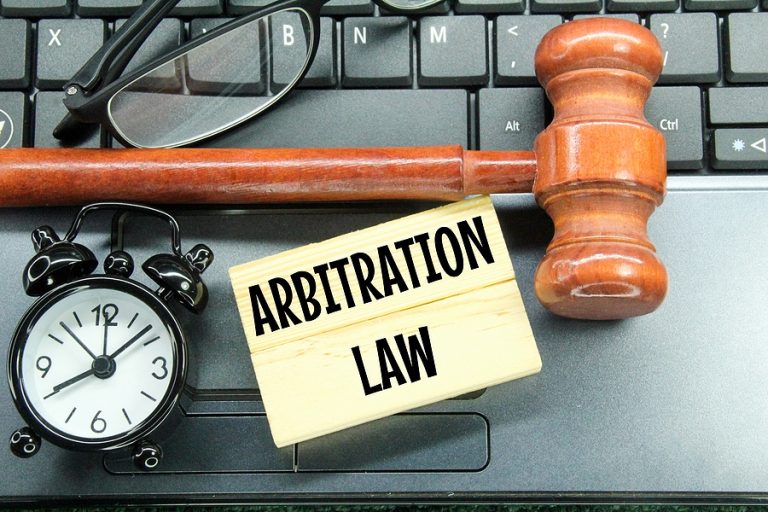Is Arbitration In St. Petersburg Right For You?
 Michael Babboni
Law
If you get into a dispute with someone else in St. Petersburg, and there’s no choice but to settle it legally, this can be a long, drawn-out, and potentially upsetting experience. Disagreements, once they go to court, can take months or even years to resolve thanks to the schedule of the court system, and depending on the nature of the lawsuit, you may be paying a lawyer for services rendered during this time, making things very expensive, especially if you don’t get a favorable ruling.
Michael Babboni
Law
If you get into a dispute with someone else in St. Petersburg, and there’s no choice but to settle it legally, this can be a long, drawn-out, and potentially upsetting experience. Disagreements, once they go to court, can take months or even years to resolve thanks to the schedule of the court system, and depending on the nature of the lawsuit, you may be paying a lawyer for services rendered during this time, making things very expensive, especially if you don’t get a favorable ruling.However, there are alternatives to the long and sometimes harrowing courtroom experience. One is mediation, where the parties in conflict try to agree to a discussion. The other is arbitration, which has its pros and its cons.
What Is Arbitration?
Arbitration occupies a position halfway between mediation and a full-blown lawsuit in court. Mediation, as the name suggests, are the disputing parties coming together, with the help of a mediator, to discuss the dispute and eventually—and informally—reach an agreement on how to move forward and settle the matter.
However, despite the more structured nature of the negotiation, this is still essentially a “handshake agreement” in the eyes of the law and not legally enforceable.
Arbitration, on the other hand, is a very specific type of negotiation where legally binding contracts are put in place. Instead of a judge or jury, an arbitrator—or arbitrators—is assigned, and arguments are made to the arbitrator, similar to a court case. The arbitrator will then arrive at a decision based on the arguments and evidence presented, and whatever decision the arbitrator makes will be abided by the disputing parties. The matter will be considered legally and contractually settled.
The Positives
There are two major benefits to taking the arbitration route over a traditional lawsuit: speed and cost. Because arbitration does not have to fit within a packed court hearing schedule, the timing is much more flexible, and disputing parties can meet in arbitration as quickly or as late as they’d prefer. This is one of the big benefits for those looking for a faster resolution.
A side benefit of this is cost. The total cost of undertaking a lawsuit can be huge, especially if the attorney working with you is not on contingency. Contingency is when a lawyer only gets paid for services if the case is won. There is also the cost of bringing a case to court. Lawsuits are not free of charge in Florida, and there are legal costs involved in bringing a case to the court’s attention, having it processed, and having it carried out with a judge and jury.
Arbitration eliminates many of these extra costs, although even without a court case, it’s still advisable to consider working with a lawyer.
The Negatives
For the benefits that arbitration can bring to the table, there are sometimes factors associated with the practice that should be carefully considered. For example, before agreeing to an arbitration, it is important to ensure you are happy with the arbitrator or arbitrators making the final decision on the case. In theory, arbitrators are supposed to be neutral third parties with no investment in the outcome of the negotiations. In practice, sometimes people will try to stack the odds in their favor by bringing in an arbitrator who is already predisposed to making a decision one way or the other. This completely negates the impartiality and neutrality that should be occurring. And since the decision is now in the hands of one person, or only a few people, that can have consequences that might not happen in a case overseen by a jury.
Another issue that people should be aware of is the types of conditions that may be written into an arbitration’s resolution. For example, sometimes, the “fine print” in an arbitration document states that once the matter is resolved, the plaintiff can no longer take the other party to court, even for new, additional grievances that may occur in the future. This provides an unethical level of future legal immunity. A final issue is that unlike a court case, where this usually the possibility of appeal for an unfavorable judgment, arbitrations don’t always have this option, depending on the arbitration conditions.
Get Proper Help
There are both good and bad sides to arbitration, but one crucial thing is that just because an arbitration avoids a court case doesn’t mean it’s a good idea to undertake an arbitration with no legal expertise. As with court rulings, arbitration decisions run a similar course of requiring arguments, evidence, and, finally, a judgment. Attorneys are still crucial in this process as they have expertise in this area.
Moreover, attorneys can be essential in avoiding traps or legal pitfalls, such as conditions in the arbitration agreement that are hidden in the fine print and can potentially hurt you and your desired outcome. When it comes to arbitrations, it’s always better to have the guidance of an experienced local attorney.
